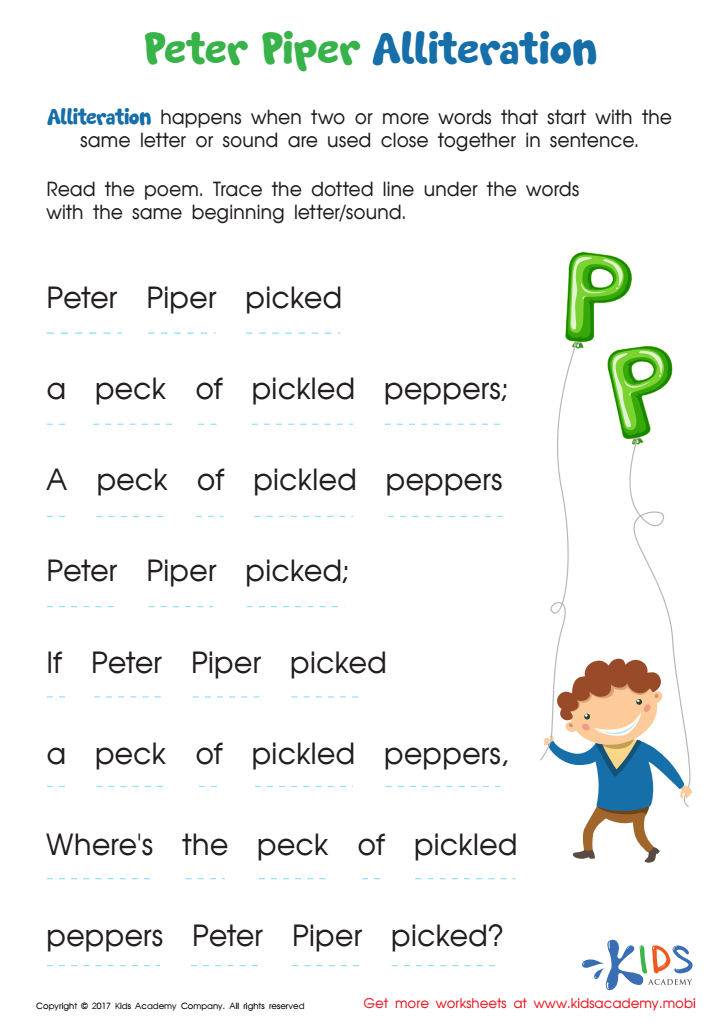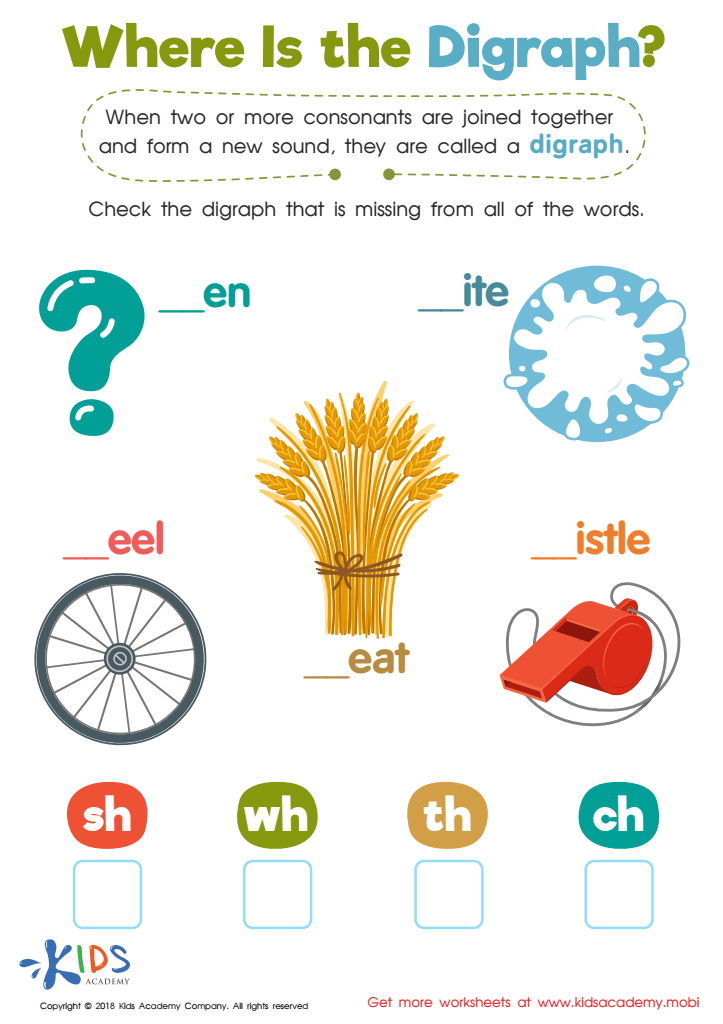Vocabulary Building Consonants Worksheets for Ages 4-9
3 filtered results
-
From - To
Enhance your child's literacy skills with our engaging Vocabulary Building Consonants Worksheets designed for ages 4-9. These interactive worksheets focus on consonant recognition and sound association, helping young learners build a solid foundation in vocabulary. Each worksheet is carefully crafted to incorporate fun activities such as matching, tracing, and coloring, making learning enjoyable! As children explore consonant sounds through relatable words and images, they'll gain confidence in their reading abilities. Our resources support early education at home or in the classroom, fostering a love for language while improving comprehension skills. Start your child's journey to literacy today with our vibrant worksheets!


Peter Piper Alliteration Worksheet


Where Is the Digraph? Worksheet


Words with sound p Reading Worksheet
Vocabulary building is paramount for children aged 4-9, and focusing on consonants plays a critical role in this development. This developmental stage is foundational for literacy and communication skills. Consonants form the backbone of most words, influencing pronunciation and meaning. By concentrating on consonants, parents and teachers can enhance phonemic awareness, which helps children decode words more effectively as they learn to read.
When children understand consonants, they gain confidence in their ability to sound out new words, enriching their vocabulary and boosting reading comprehension. Exposure to a variety of consonants through engaging activities—like phonics games, songs, and storytelling—makes learning fun while establishing strong linguistic foundations. This active engagement fosters curiosity about language and encourages children to experiment with new words.
Moreover, vocabulary skills strongly correlate with overall academic success. A robust vocabulary enhances writing proficiency and increases classroom participation—skills crucial for future learning. For parents and educators, investing time in vocabulary building during these critical years will lead to better communication skills, increased school readiness, and enhanced cognitive development. Ultimately, nurturing a rich vocabulary equips children with the tools they need for lifelong learning and successful interpersonal interactions.

 Assign to My Students
Assign to My Students












